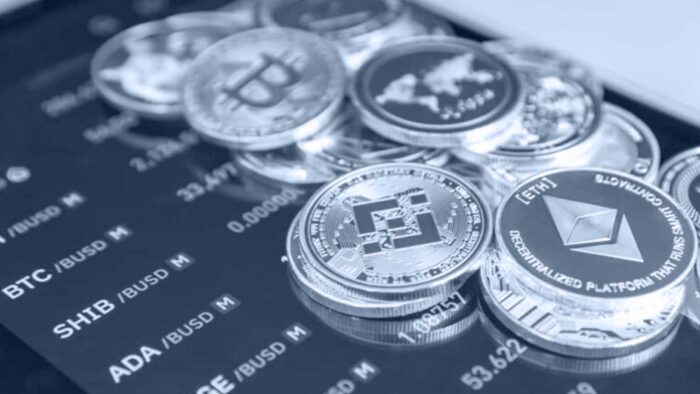A Beginner’s Guide to Crypto Exchanges
You’ve been hearing about it in the news for months now. Everyone and their dog are not only doing it but raving about it. Even the President of the United States has ordered the federal government to look into it, a step many consider to be one in the right direction among the major countries utilising the crypto markets.
With all this in mind, you decide to finally take the plunge. You are going to see what all the fuss is about. You are finally going to start investing in cryptocurrency. But where do you start?
You are definitely going to want to learn about crypto exchanges, as these are where you are going to be doing your actual trading in relation to any digital asset or crypto assets that you own. We have already covered crypto wallets, another important part of the cryptocurrency experience. The following information should help you make the best decision for you in terms of which exchange works best for your needs.
As the title suggests, this guide is aimed at people with little to no experience, but advanced traders should still read on. If nothing else, it’s always good to refresh core concepts and fundamentals.
So, what is a cryptocurrency exchange?
Crypto exchanges are platforms where users can trade digital currencies for other assets and tokens, including other cryptocurrencies as well as traditional currencies such as US Dollars.
Without exchanges, it would fall upon each user to find other investors looking to trade, agree upon an exchange rate, and then send the coins directly to the correct wallet. Exchanges make the process of trading simpler and more convenient. But with over 300 active crypto exchanges, how do you go about deciding on what works best for you?
Let’s break it down.
Types of Exchanges
Crypto Market Exchanges come in a few different flavours: Centralised (CEX), Decentralised (DEX), and Hybrid.
Centralised Exchanges
Centralised Exchanges tend to be the most friendly for beginners. They are more commonplace, tend to have a more “official” feel to them, and have better customer support structures, and insurance in the event of a platform failure. They also tend to have a Know Your Customer (KYC) process in order to comply with US anti-money laundering regulations. In this sense, the process can feel similar to opening a brokerage account or even remind you of opening a savings account at your bank, as similar questions will be asked. One thing to keep in mind about Centralised Exchanges is that they can be more vulnerable to malicious attacks.
Decentralised Exchanges
Decentralised exchanges keep closer to the spirit of Bitcoin in that there is no one central hub. Servers are spread across the globe so that no one computer can compromise the network in the event of an attack. This alone is enough to motivate some folk to go for decentralised exchanges instead of centralised ones. Add onto that a registration process that is more relaxed and folks who are uncomfortable sharing personal information will also likely gravitate towards these.
However, there are some drawbacks. Small liquidity, a lower trading volume, and a lack of customer support could be enough to turn off some people.
Hybrid Exchanges
Hybrid exchanges attempt to strike a balance. By providing greater functionality offered by centralised as well as the security offered by decentralised, Hybrid exchanges aim to give you the best of both worlds. However, with the challenges of high costs, limited assets, and limited scalability, only time will tell how well they hit their mark.
Fees
Crypto exchanges, just the same as your bank or brokerage account have a series of fees associated with them. Be on the lookout for any or all of the below:
Exchange Fees
These are service fees charged in order to keep the exchange profitable:
- Trading fees, also called maker/trader fees, are something you can expect to see whenever you engage in a transaction using virtual currencies.
- Deposit fees are charged whenever you move money into your account.
- Withdrawal fees are charged whenever you move money out of your account, regardless of whether it’s crypto or traditional currency.
- Account fees are charged to keep your account open. You can expect to see these monthly in most cases.
Network Fees
If you want to avoid these, you should consider a centralised exchange. Many (but not all) will incur this cost on your behalf. These are fees that get paid to crypto miners who process crypto transactions on the blockchain. On a decentralised exchange, you can expect to pay this fee.
Final Thoughts
This post isn’t intended to be the be-all-end-all on the topic of exchanges. More than anything, the intention is to get you asking the right questions in order for you to be able to choose the best exchange to suit your needs. Is privacy your top concern? Would you rather give up some personal information in order to receive a more “official feeling” experience in the identity verification process? Would you be willing to test the waters on a newer platform in an attempt to get the best of both worlds like the more forward-thinking crypto users?
Does the exchange you are looking at even support your coin of preference? All these are questions you should ask yourself.
Cryptocurrency can feel intimidating if you are new. Fortunately, there is no shortage of resources to help you make the best possible choices. Check out our Insights section here at BCB Group today to keep on top of the latest news and developments in the cryptocurrency industry!
BCB Group comprises BCB Prime Services Ltd (UK), BCB Payments Ltd (UK), BCB Digital Ltd (UK) and BCB Prime Services (Switzerland) LLC. BCB Payments Ltd is regulated by the Financial Conduct Authority, no. 807377, under the Payment Services Regulations 2017 as an Authorised Payment Institution. BCB Prime Services (Switzerland) LLC, a company incorporated under the laws of the Swiss Confederation in the canton of Neuchâtel with business identification number CHE-415.135.958, is an SRO member of VQF, an officially recognized self-regulatory organization (SRO) according to the Swiss Anti-Money Laundering Act. This update: 14 Oct 2020.
The information contained in this document should not be relied upon by investors or any other persons to make financial decisions. It is gathered from various sources and should not be construed as guidance. The information contained herein is for informational purposes only and should not be construed as an offer, solicitation of an offer, or an inducement to buy or sell digital assets or any equivalents or any security or investment product of any kind either generally or in any jurisdiction where the offer or sale is not permitted. The views expressed in this document about the markets, market participants and/or digital assets accurately reflect the views of BCB Group. While opinions stated are honestly held, they are not guarantees, should not be relied on and are subject to change. The information or opinions provided should not be taken as specific advice on the merits of any investment decision. This document may contain statements about expected or anticipated future events and financial results that are forward-looking in nature and, as a result, are subject to certain risks and uncertainties, such as general economic, market and business conditions, new legislation and regulatory actions, competitive and general economic factors and conditions and the occurrence of unexpected events. Past performance of the digital asset markets or markets in their derivative instruments is not a viable indication of future performance with actual results possibly differing materially from those stated herein. We will not be responsible for any losses incurred by a client as a result of decisions made based on any information provided.








